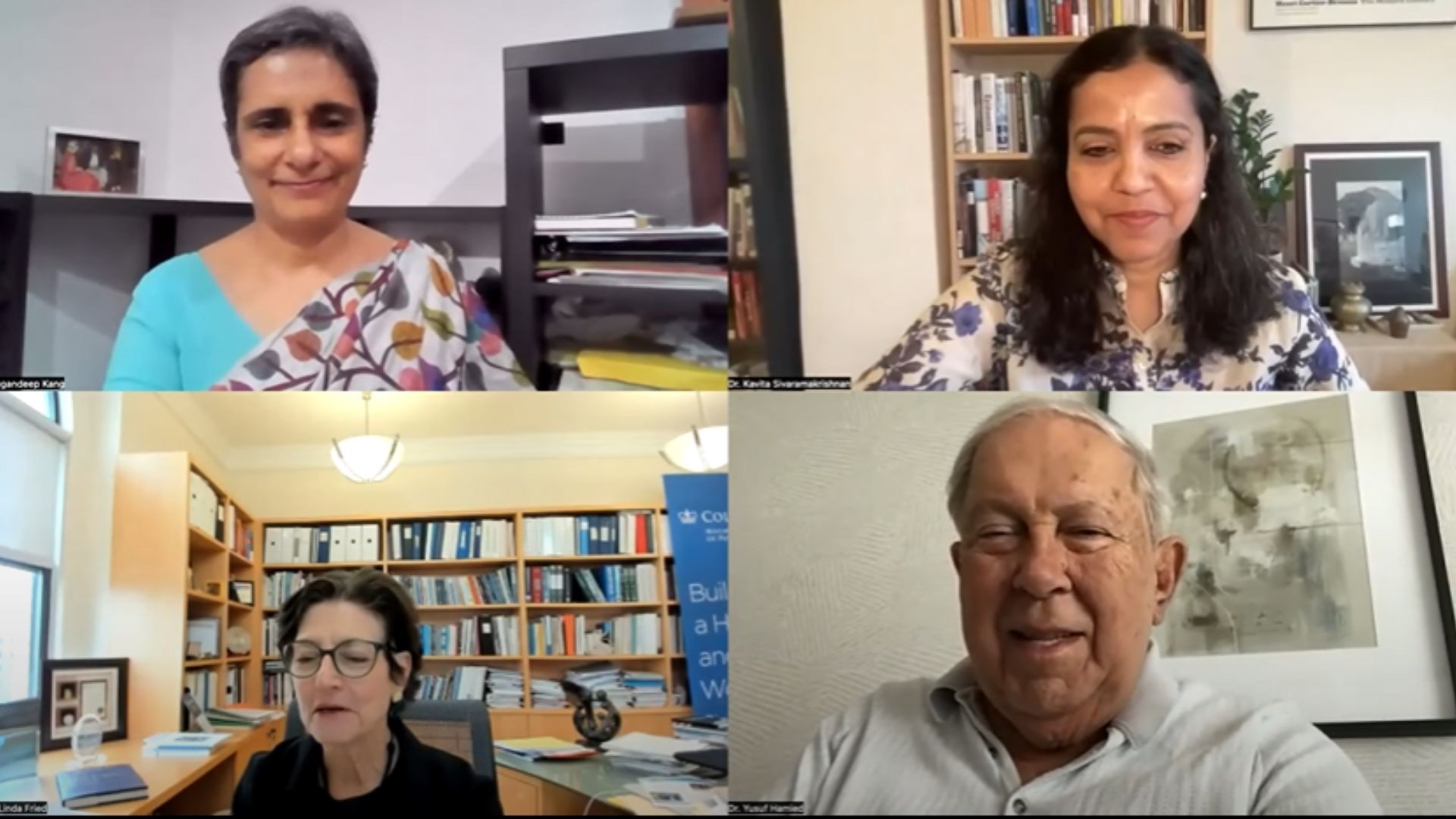Equitable Access to Vaccines: Lessons from India for Pandemics and Beyond

Public health has made incredible strides in the past two centuries, particularly in the era of antibiotics and vaccines. Vaccines have played a vital role in doubling life expectancy and preventing infectious diseases, ensuring the health and well-being of individuals throughout their lives. Addressing the importance of equitable access to vaccines, both during and beyond pandemics, Dr. Gagandeep Kang, Professor of Microbiology at Christian Medical College, Vellore, delivered the Distinguished Yusuf Hamied Lecture online. The lecture, organized by the Columbia Mailman School of Public Health and the Columbia Global Centers | Mumbai on April 19, 2023, attracted an international audience of academics and practitioners.
Vaccines have been estimated to save millions of lives each year and have broader benefits, such as improving child survival rates, growth, cognitive abilities, education, and reducing healthcare costs. Yet, vaccine inequity persists within and between countries. Dr. Kang cited examples of delayed vaccine introductions in India compared to other nations and discussed the challenges the country faces in reaching its vast population, particularly in rural areas. These challenges have resulted in a significant number of unimmunized and under-immunized children.
During the lecture, Dr. Kang also addressed the impact of vaccines in preventing diseases like rotavirus gastroenteritis. She presented data demonstrating the positive effects of vaccination in reducing the severity of outbreaks. Indian-made vaccines, which have been successfully pre-qualified by the World Health Organization, have not only benefited India but also other countries in Africa and Asia.
Shifting the focus to COVID-19 vaccines, Dr. Kang discussed the global rollout and India's vaccination efforts. India has achieved a significant number of vaccinated citizens, but challenges such as recruitment, safety monitoring, and decision-making complexities have been encountered along the way. Despite these obstacles, COVID-19 vaccines have been rapidly distributed worldwide, saving millions of lives and contributing to economic recovery.
Dr. Kang lamented that the pandemic has had a detrimental impact on routine immunization. Global vaccine coverage has decreased, especially in low-income countries. Efforts are being made to address the issue of children who have not received any vaccines through initiatives like mind mapping and targeted immunization campaigns. There is an urgent need for greater access to vaccines and the development of new vaccines to prevent various diseases at different stages of life, she posited. Opportunities exist to expand vaccination programs in India and globally, including addressing emerging infections and diseases that disproportionately affect vulnerable populations.
The lecture concluded with an outline of the immunization agenda set by the World Health Organization, emphasizing the importance of people-focused, country-owned, and data-driven vaccination programs to ensure universal access to vaccines for the sake of good health and well-being. Sales of vaccines and a focus on impactful targets are crucial for future progress in global immunization efforts. According to Dr. Kang, "Access to preventive interventions is a human right. Immunization contributes to 14 out of the 17 Sustainable Development Goals of the United Nations. Immunization will help create a productive workforce, leading to strong economies and, eventually, the eradication of poverty."
The lessons learned from India's experience highlight the significance of equitable access to vaccines during pandemics and beyond. It underscores the need for comprehensive vaccination strategies, improved healthcare infrastructure, and targeted efforts to reach marginalized populations. By prioritizing access to vaccines and strengthening immunization programs, we can ensure a healthier and more resilient world for all.